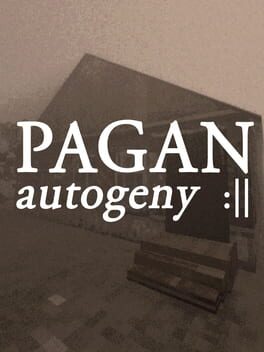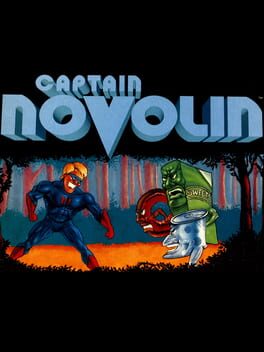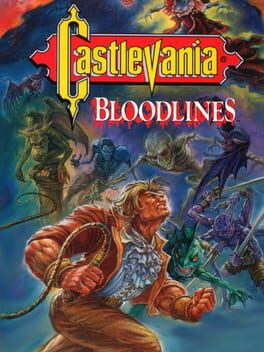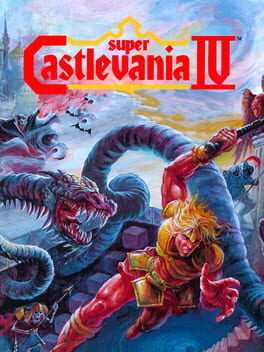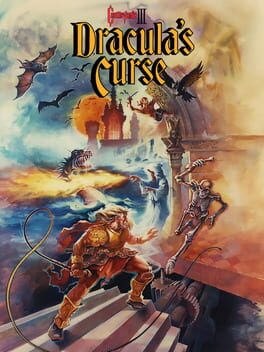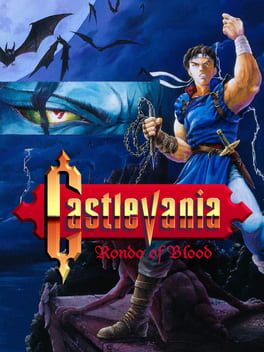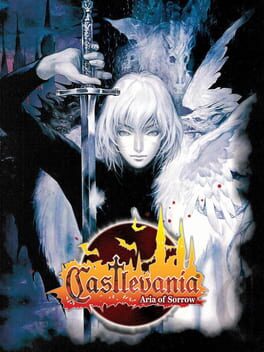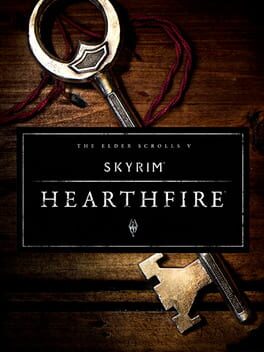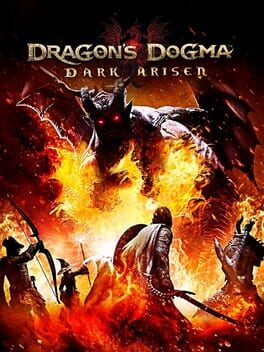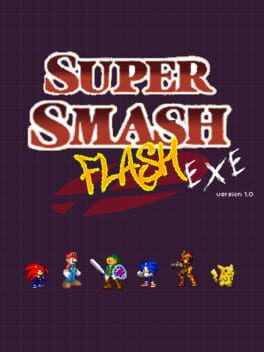ViviMayoi
2019
Amazing atmosphere and sound design; the visual style and the minimalism of the gameplay and UI really brings out everything this game's going for. The game really FEELS like the abandoned remains of an old adventure game with an MMO flavor. The reveals in each successive ending really ties the whole experience together and I really recommend it if you like minimalist, experimental stuff.
1992
A pretty good entry in the series, if a bit unremarkable. Some annoying boss design and short length compared to what came before it make it less memorable than other classic titles. Eric and John are also not that different, which doesnt make replaying it an enticing offer. Still a fun game, with the trademark aesthetic polish of Castlevania. Worth playing for classic CV fans!
1991
This game is a much more fluid take on the classic Castlevania gameplay, but it still has a lot of weird design decisions and loves blindsiding the player at times. The game is beautiful-looking and -sounding, with a lot of cool new concepts and a more complete toolkit for Simon compared to the previous games. Some strangely frustrating level design and a harsh difficulty curve gets in the way of enjoying SCv4 to the fullest, but it's still good fun.
The best Castlevania title on the NES for sure! Goes back to the more linear, level-based style of the first game while giving the player multiple routes with different recruitable characters you can play as. Even if the game still shows its age in places, it throws less curveballs than the previous games, feels more polished, and has a banger soundtrack. Solid game.
For sure the best entry in the series pre-PlayStation era. If not for the difficulty being a bit low, I'd have nothing bad to say about this game. The level design is great, the music slaps the whole way through, the stages are beautiful and varied... Gameplay-wise, Richter and Maria both offer fun and meaningfully different playstyles, which really helps cement this game as my favorite classic Castlevania title.
I really like the writing in this. The way the story is narrated gives a really strong impression, what with the snarky, overly familiar narrator addressing the protagonist directly in second person. The aesthetic of it all is just amazing, with a captivating soundtrack and visuals that range from charming to haunting, but always remain beautiful.
Saying more without spoiling the experience would be difficult, so I'll just assure you that this is as good as it is gay!!
Saying more without spoiling the experience would be difficult, so I'll just assure you that this is as good as it is gay!!
Easily the most fun Castlevania experience on the GBA: distinct and memorable areas, great OST, and super varied combat abilities thanks to the multitudes of souls found throughout the game.
Movement is a bit lackluster at the very start of the game; the dash Soma is equipped with feels pretty poor after playing the franchise's previous attempts at a metroidvania. On the other hand, the movement really shines when you near the end of the game.
Truly completing this game requires a fair amount of grinding if you want all the souls, as it's completely RNG-reliant whether you find what you want in a timely fashion. Still, that's the game's biggest problem in my eyes — a good sign that the game is truly solid in almost every department.
Movement is a bit lackluster at the very start of the game; the dash Soma is equipped with feels pretty poor after playing the franchise's previous attempts at a metroidvania. On the other hand, the movement really shines when you near the end of the game.
Truly completing this game requires a fair amount of grinding if you want all the souls, as it's completely RNG-reliant whether you find what you want in a timely fashion. Still, that's the game's biggest problem in my eyes — a good sign that the game is truly solid in almost every department.
So to round out my opinion of the game, having achieved 100% completion:
The pawn system is a really cool idea, if a bit iffy in execution. Getting a pawn to do what you want it to in a fight can be hard, even when it knows the appropriate weaknesses and strategies.
The customization options are great, and the end-game grind is more fun than I would have expected it to be, given what it is. Dark Arisen is a very fun expansion and the lore scattered around Bitterblack Isle is genuinely really cool.
The combat system is great and responsive, with every fight having its own cool set of mechanics. On the other hand, I wish the drawbacks of the more interesting, higher-level spells weren't just "you take so long to cast this and recover the lost stamina that you might nod off". This ended up wasting a lot of the potential and style of those spells and making the non-mage vocations more fun.
Overall, a very solid game I appreciated playing. Nothing super special, and I'm not sure if I'll go back to it after this playthrough, but I enjoyed my time.
The pawn system is a really cool idea, if a bit iffy in execution. Getting a pawn to do what you want it to in a fight can be hard, even when it knows the appropriate weaknesses and strategies.
The customization options are great, and the end-game grind is more fun than I would have expected it to be, given what it is. Dark Arisen is a very fun expansion and the lore scattered around Bitterblack Isle is genuinely really cool.
The combat system is great and responsive, with every fight having its own cool set of mechanics. On the other hand, I wish the drawbacks of the more interesting, higher-level spells weren't just "you take so long to cast this and recover the lost stamina that you might nod off". This ended up wasting a lot of the potential and style of those spells and making the non-mage vocations more fun.
Overall, a very solid game I appreciated playing. Nothing super special, and I'm not sure if I'll go back to it after this playthrough, but I enjoyed my time.
I've been playing the Castlevania franchise for the first time as part of a marathon of some kind, and I awaited the moment where I got to this game with impatience. I heard a lot of good about Symphony of the Night, and I can say that it still surprised me. It's an amazing first entry in the metroidvania genre for the franchise which lended part of its name to said genre... and for good reason.
Despite being more than 20 years old as of the time of writing, very little about the game feels like it, if not for the crusty, poorly translated English dialogue of the original PlayStation version. It is incredibly polished, executing the now-proven metroidvania formula better than so many other games it inspires. Combat is fun, with a good learning curve as you obtain new weapons, learn new spells and constantly find new tools to try out against more and more varied enemies.
A crucial part of metroidvania games is how fun the main gameplay loop is — that of exploring the play area, and obtaining new tools to traverse it and progress. Well, good news: exploring and traversing the castle is a joy all throughout. Controlling Alucard is intrinsically fun, thanks to how tight movement feels from the start. With all the options he gradually gets access to as you guide him towards his objective, movement becomes even more satisfying as you progress.
The aesthetics of the game are strong, with a great soundtrack (in classic Castlevania fashion), accompanied by sound effects that amplify every impact, every action Alucard and his foes take. The spritework and background art are sublime through and through, with the game having visuals that are still referenced and emulated decades later.
If this game falls short of perfect, it's only because of minute issues. There are the aforementioned dialogue issues, yes, but that is hard to hold against the game when they were changed in future ports. My main gripes are with some few, yet really obtuse secrets that the game hints you towards in no capacity. It can get frustrating when trying to reach full completion like many metroidvania fans(read: me...) are wont to do, You may find yourself relying on a guide if you're looking to achieve that.
That said, those issues are tiny details in a pool of greatness. Don't let that detract you from playing Symphony of the Night! It's a superb game that provides hours of fun and is, for sure, a highlight of the series so far. I'm sure I'll find myself replaying it soon enough!
Despite being more than 20 years old as of the time of writing, very little about the game feels like it, if not for the crusty, poorly translated English dialogue of the original PlayStation version. It is incredibly polished, executing the now-proven metroidvania formula better than so many other games it inspires. Combat is fun, with a good learning curve as you obtain new weapons, learn new spells and constantly find new tools to try out against more and more varied enemies.
A crucial part of metroidvania games is how fun the main gameplay loop is — that of exploring the play area, and obtaining new tools to traverse it and progress. Well, good news: exploring and traversing the castle is a joy all throughout. Controlling Alucard is intrinsically fun, thanks to how tight movement feels from the start. With all the options he gradually gets access to as you guide him towards his objective, movement becomes even more satisfying as you progress.
The aesthetics of the game are strong, with a great soundtrack (in classic Castlevania fashion), accompanied by sound effects that amplify every impact, every action Alucard and his foes take. The spritework and background art are sublime through and through, with the game having visuals that are still referenced and emulated decades later.
If this game falls short of perfect, it's only because of minute issues. There are the aforementioned dialogue issues, yes, but that is hard to hold against the game when they were changed in future ports. My main gripes are with some few, yet really obtuse secrets that the game hints you towards in no capacity. It can get frustrating when trying to reach full completion like many metroidvania fans
That said, those issues are tiny details in a pool of greatness. Don't let that detract you from playing Symphony of the Night! It's a superb game that provides hours of fun and is, for sure, a highlight of the series so far. I'm sure I'll find myself replaying it soon enough!
2006
2019
